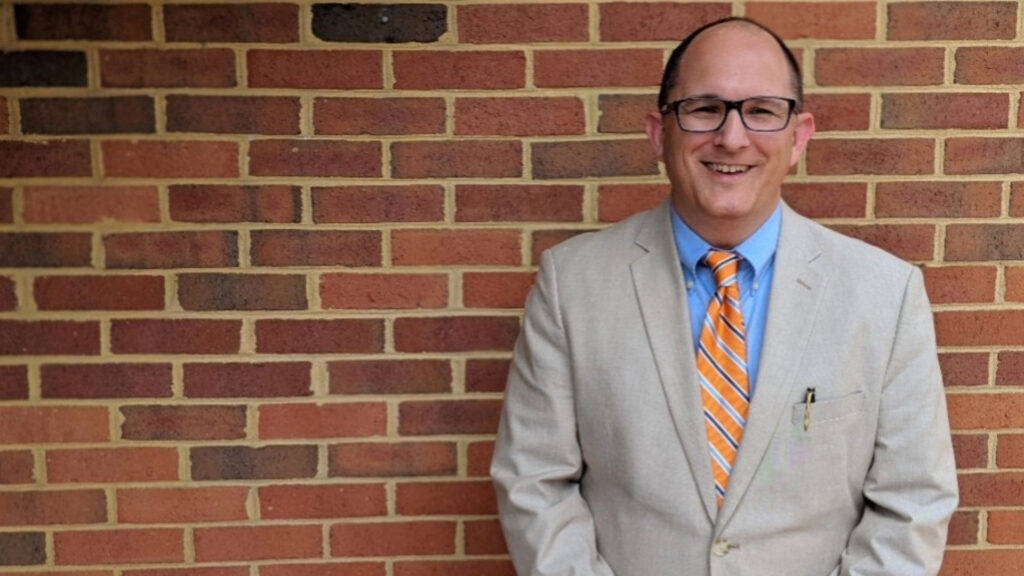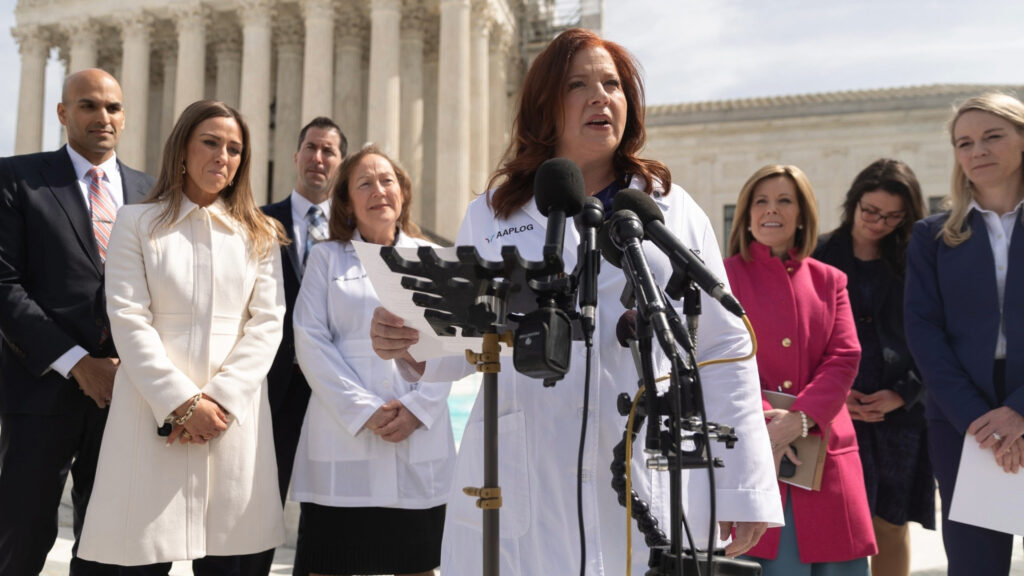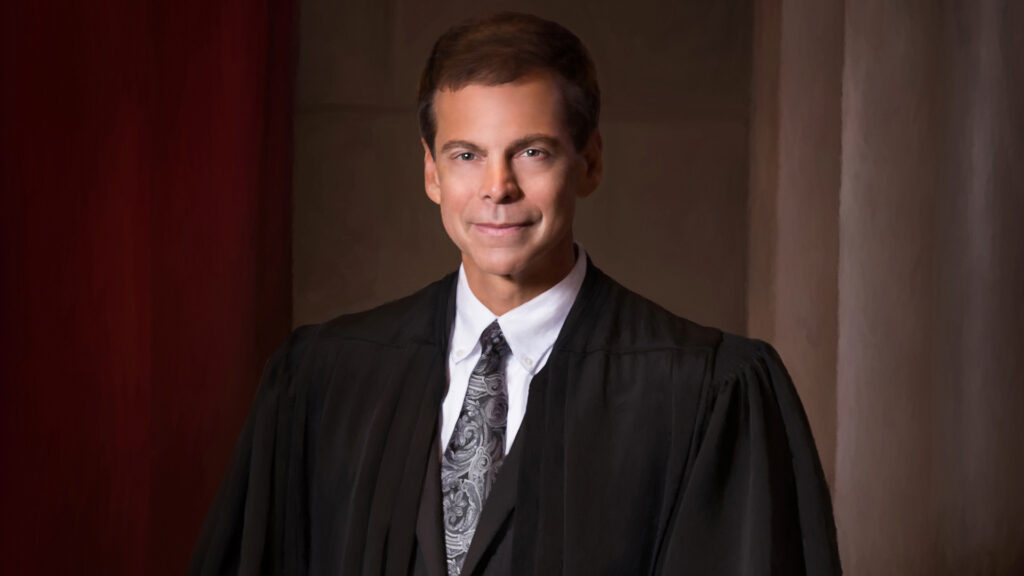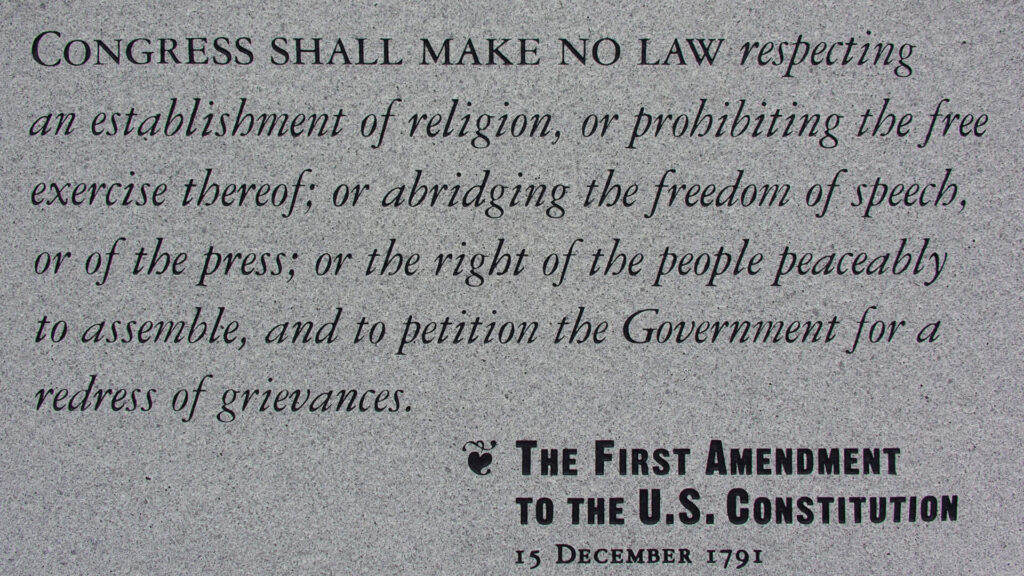Former teacher Peter Vlaming was fired from a high school in Virginia in 2018 for refusing to use the requested pronouns of a transgender student. He lost his job after refusing to comply even after the school’s administration specifically directed Vlaming to do so.
Teacher Filed Lawsuit Against School Board After Termination
Vlaming reportedly filed a lawsuit against the school board the year after he was terminated. Multiple reports confirm that Vlaming refused to use male pronouns when addressing a transgender boy.

According to the report, Vlaming chose to avoid using pronouns at all when referring to the transgender student.
Alliance Defending Freedom Argued That School Board Violated Rights To Free Speech
The Alliance Defending Freedom (ADF) group supported Peter Vlaming in his legal fight against the school board. The Christian legal advocacy group argued that the school’s directive violated Vlaming’s constitutional right to free speech.

In addition, it argued that the school board violated the former teacher’s right to exercise his religion as well. Both of the rights are protected through the Virginia Religious Freedom Restoration Act as well as the Virginia Constitution.
Peter Vlaming Taught French Class For School District For Nearly Seven Years
Vlaming reportedly taught French class for the school district for close to seven years before the School Board terminated his employment. The ADF stated that “Peter was passionate about the subject he taught” as a teacher.

The group further expressed that Peter “was well-liked by his students and he did his best to accommodate their needs and requests.” However, Vlaming “could not in good conscience speak messages that he doesn’t believe to be true.”
Attorney General, Feminists, And Physicians Filed Briefs In Support Of Vlaming
Multiple reports confirm that Peter Vlaming received a lot of support from professionals and even government officials. For instance, the Virginia attorney general, feminists, and physicians filed briefs with the highest court of the commonwealth in support of Peter Vlaming.

There was also a wide variety of organizations that filed briefs on Vlaming’s behalf as well. Reports confirm that Shawn Voyles was the attorney that served as co-counsel representing Vlaming in the case.
Physician Group: ‘Mr. Vlaming…Was Acting In [The Student’s] Best Interest’
A group of physicians that treats children and adolescents showed their support for Peter Vlaming in writing. The group wrote that “affirming a child’s assertion of a discordant gender identity actually exacerbates the psychological and emotional distress that underly the assertion.”

The group added that Peter Vlaming was right for “refusing to deny biological reality by acceding to his student’s demands.” As a result, the group believes that “it was Mr. Vlaming who was acting in [the student’s] best interest.” The group added that Vlaming “should be celebrated” instead of terminated.
Commonwealth: Firing ‘Transgresses Virginia’s Longstanding Constitutional Protections’
The Commonwealth of Virginia discussed the decision in its own brief. According to the brief, the School Board deciding to fire Vlaming was unconstitutional.

According to the briefing, the decision to fire Vlaming “transgresses Virginia’s longstanding constitutional protections.” The Commonwealth highlighted the fact that Vlaming refused “to express a belief he does not hold” because it was “contrary to his faith.”
Radical Feminist Group: ‘Women And Men…Simply Want To Perform Their Jobs’
Women’s Liberation Front, which is a self-described radical feminist organization, commented on the case as well. The group stated that “gender identity-based laws and policies have already been applied in a manner that tramples upon the rights, privacy, and safety of women and girls.”

The group highlighted that it was “no exaggeration to say that the current wave of ‘gender identity’ advocacy involves an explicit rejection of objective scientific fact.” The group added that this type of legal action isolates and threatens “women and men who, like Mr. Vlaming, simply want to perform their jobs without being compelled to support beliefs they do not share.”
School Board Argued That Termination Was Warranted Due To Policy Violation
The School Board argued that the termination of Peter Vlaming’s employment was warranted on the grounds of school policy violations. The Board felt as if Vlaming violated the policies implemented by the school regarding discrimination and harassment specifically about gender identity.

Vlaming felt as if he did accommodate the student by refusing to use pronouns at all when addressing the student. However, he was later directed to use male pronouns and was fired after refusing to do so.
Superintendent Confirmed That She Recommended Vlaming’s Termination
Superintendent Laura Abel made it clear to the School Board that she was the one that recommended the termination of Peter Vlaming’s employment. She stated that administrators ordered the former teacher to refer to the student by male pronouns on multiple occasions.

Vlaming refused to use the male pronouns when addressing the student because he reportedly considered it to be a “lie.” According to Abel, “by failing to follow the directive, he was therefore, discriminating and creating a hostile environment.”
Court Initially Dismissed The Former Teacher’s Lawsuit Against School Board
The lawsuit was initially filed at the King William Circuit Court. However, a circuit court judge later granted the School Board’s motion to dismiss the claims made within Vlaming’s lawsuit.

The case did not go to trial at that time. In addition, there was no evidence heard in that case as well. The Alliance Defending Freedom group decided to get involved and represented Vlaming.
Vlaming, Christian Legal Advocacy Group Filed Appeal To Supreme Court Of Virginia
Vlaming, who was reportedly represented by Alliance Defending Freedom, decided to file an appeal to a higher court regarding his case. They filed an appeal with the Supreme Court of Virginia.

The original objective was to convince the Supreme Court of Virginia to restore some of the claims within the lawsuit. By doing so, the case would then be able to be heard within the circuit court.
Supreme Court Justices Agreed Lower Court Should Not Have Dismissed Vlaming’s Claims
Vlaming initially claimed within the lawsuit that his rights to freely exercise his speech and religion were violated. A majority of justices within the Supreme Court of Virginia agreed that Vlaming’s breach-of-contract claims should not have been dismissed by the lower court.

Vlaming also indicated the need for him to have his right to due process restored as well. The state’s high court determined in a ruling in mid-December 2023 that the lawsuit provided a cause of action on several claims to survive the request of the Supreme Court to throw out the case.
Vlaming Claimed That School District Should Have Allowed Him To Not Use Pronouns
According to the court filing, Vlaming asserted that the “school district could have allowed him simply to refrain from using pronouns when addressing transgender students.” Eden Hellman with the ACLU of Virginia stated that this assertion highlighted the alleged discrimination.

The court filing stating that “a teacher who refuses to use pronouns when addressing a transgender student treats that student differently from all other students in the class.” This would “significantly undermine” the “compelling interest” of the School District.
No Government Can Force A Citizen ‘Into Pledging Verbal Allegiance To Ideological Views’
Justice D. Arthur Kelsey stated that “no government committed to these principles can lawfully coerce its citizens into pledging verbal allegiance to ideological views that violate their sincerely held religious beliefs.” He also wrote in the majority decision that an exception would be if there was “a truly compelling reason for doing so.”

As mentioned, most of the justices agreed that Vlaming’s claims should not have been dismissed. However, the decision was not unanimous.
Supreme Court Justices Were Not United On Legal Analysis, Appeal Effort Of Case
The justices were reportedly not united on the legal analysis of the case or the appeal efforts overall. Therefore, leading Justice Thomas P. Mann reportedly wrote a dissenting opinion on some of the claims made by Peter Vlaming.

According to the report, Justice Mann was not the only one to express a dissenting opinion regarding the Supreme Court’s decision in this case. His opinion was also supported with two other justices – Justice Cleo E. Powell and Chief Justice S. Bernard Goodwyn.
Mann Claims Vlaming Spoke In His Role As Teacher, Not As Public Citizen
Justice Mann wrote that it is important to consider the fact that Peter Vlaming was not speaking a public citizen on the matter in question. He was a public employee that spoke in his role as a teacher.

He also noted that Vlaming was warned about the consequences of his refusal to use pronouns to address the transgender student. He was advised that his refusal would violate the School Board’s policies and, as a result, “failed to plead a cognizable free speech or due process claim under the Virginia Constitution.”
Mann Raised Concerns About Majority’s Opinion Due To Protected Rights To Religion
Mann raised a concern about the majority’s decision as well. According to Mann, the decision presumably gave the beliefs expressed by Peter Vlaming “greater deference in the eyes of the law.”

Mann believed that this was the case since his argument and the reason for his refusal to use the pronoun preferred by the transgender student was deeply-rooted within his religious beliefs.
Justice Mann Referenced Supreme Court’s Handling Of ‘Loving v. Virginia’ Case
Justice Mann also referenced the historic Loving v. Virginia case that was also handled by the Virginia Supreme Court. Mann stated that the Supreme Court was not able to find any “sound judicial reason” that would justify overturning its previous decision.

The previous decision of the Supreme Court in that particular case was to uphold miscegenation statutes before the U.S. Supreme Court made history with its own landmark decision. This landmark decision led to the ban of interracial marriages ending.
Justice Mann: Founding Fathers Understood ‘The Ever-Evolving Nature Of Humankind’
Justice Mann acknowledged that the founding fathers of the U.S. failed “in their time to recognize the rights of marginalized or enslaved people.” However, he credited them for still having the “foresight to understand the ever-evolving nature of humankind.”

Mann opened that part of his report by indicating that it is “uncomfortable” to “relive this repugnant history.” Nevertheless, he expressed the need to “emphasize in the sharpest terms the importance of viewing religious rights with the rights of others in mind.”
Justice Mann Claimed The Student In Question Is ‘Nearly Invisible’ In Majority’s Opinion
Justice Mann noted that the role of the actual student in question, who was referred to as “John Doe” within the opinion, was arguably “nearly invisible” in the majority’s opinion. He explained that the student will undoubtedly “read or hear about the majority opinion.”

He further expressed that “hopefully” the student would hear about “this partial occurrence and dissent as well.” According to Mann, the student may even observe that “he is nearly invisible” except for the “background section.”
Christian Legal Advocacy Group: ‘Peter Was Fired…For Something He Couldn’t Say’
Chris Schandevel, the Senior Counsel of Alliance Defending Freedom (ADF), opened up about the case in an official statement. He indicated that “Peter [Vlaming] wasn’t fired for something he said.” On the contrary, according to Schandevel, Vlaming “was fired for something he couldn’t say.”

Schandevel also was the one that argued the case when it was reviewed by the high court. Schandevel stated that the Virginia Supreme Court “rightly agreed” that the case against the School Board “for violating his rights under the Virginia Constitution and state law should proceed.”
Court Filing Referenced Pickering v Board Of Education Case from 1968
The court filing referenced the landmark case of Pickering v Board of Education (1968). This case made a lasting impact in the world of U.S. constitutional law regarding the First Amendment rights of public employees.

High school teacher Marvin Pickering wrote a letter to a local newspaper. The letter criticized the way that the superintendent and School Board handled various bond issues, tax revenue distribution, and school fund allocation. Pickering was terminated by the School Board as a result of his writing.
Supreme Court Ruled That Pickering’s Rights Were Protected Under First Amendment
The Supreme Court found that Pickering’s letter was protected by the rights outlined within the First Amendment of the U.S. Constitution. A balancing test was used to identify whether the speech of a public employee was protected.

The Court determined that Pickering’s letter addressed matters of public concern. The balancing test essentially weighed the employee’s desire to comment on matters of public against the interest of the employer to promote efficiency and avoid workplace disruptions.
Court Document Highlighted Contrasting Decision Of Mayer v. Monroe County
The court filing highlighted the contrast that existed between Pickering v Board of Education and Mayer v. Monroe County Community School Corporation from 1969. In that case, the U.S. Court of Appeals for the Seventh Circuit focused on the dismissal of public school employee Mrs. Mayer.

Mrs. Mayer was terminated after she wrote a letter to a local newspaper editor that expressed her disagreement with the decision of the school district to enforce a “no-cut” policy for sports teams. The court ruled in favor of the school district, indicating that Mayer’s rights were not violated as her letter did not feature a matter of public concern.
ADF Center For Academic Freedom Claims To Protect ‘First Amendment’, Related Freedoms
The ADF Center for Academic Freedom is reportedly dedicated to protecting the First Amendment in addition to related freedoms for students and faculty members. It is highlighted as a mission statement within the organization’s official website.

According to the website, the center strives to make sure “everyone can freely participate in the marketplace of ideas without fear of government censorship.” Senior Counsel Chris Schandevel has also represented clients such as a faith-based adoption agency and pregnancy resource center.





GIPHY App Key not set. Please check settings